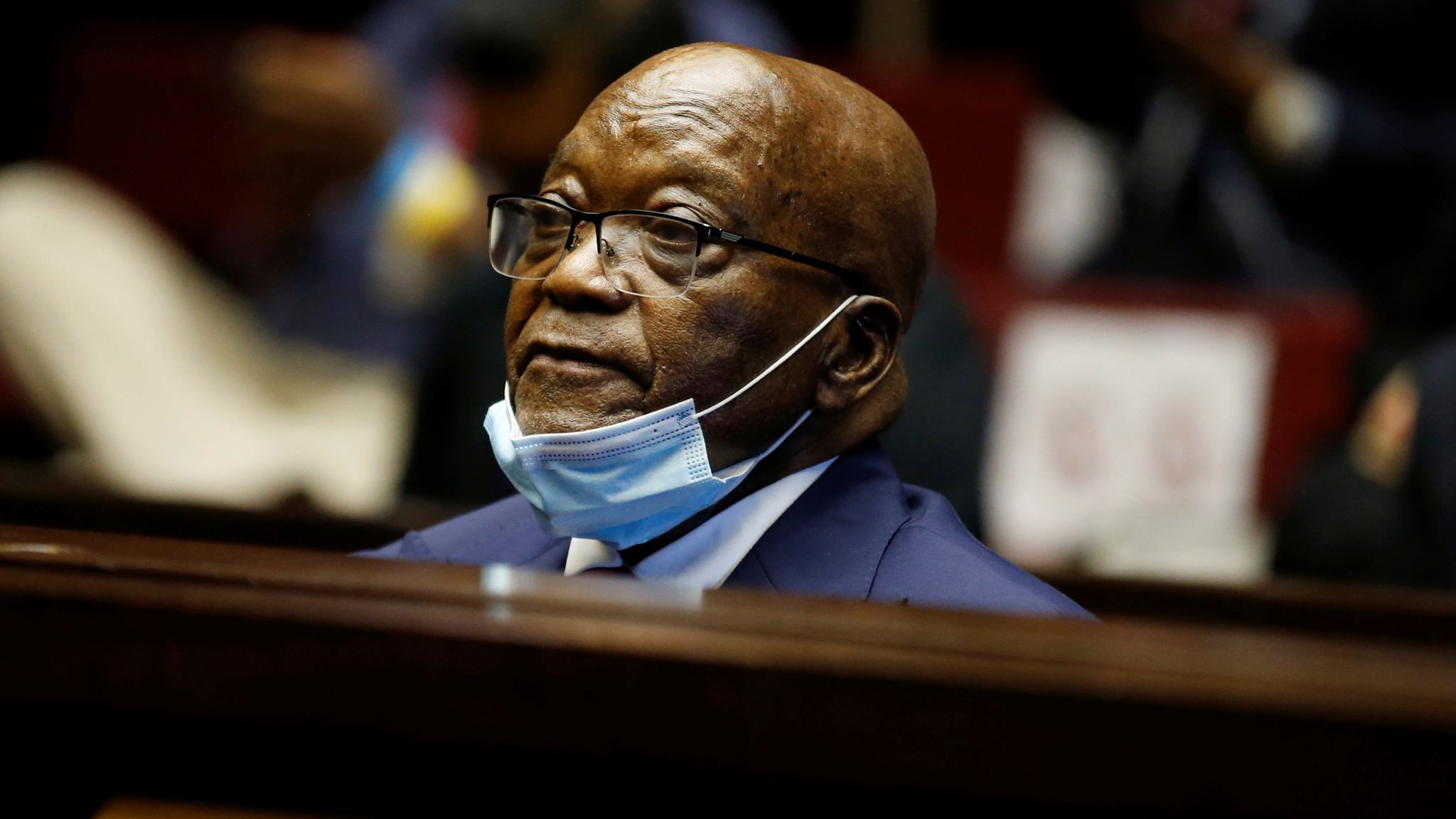BREAKING NEWS
South Africa: Ex-President Jacob Zuma bags 15 months imprisonment

South Africa’s highest court on Tuesday ordered the imprisonment of Jacob Zuma, the country’s former president, for 15 months on contempt charges, after he defied an order to appear before a corruption inquiry examining the breathtaking financial scandals that tainted his tenure as the country’s leader from 2009 to 2018.
The move to detain Mr. Zuma, a comrade of Nelson Mandela and one of the dominant figures in the governing African National Congress party since apartheid ended in 1994, was a notable development in the legacy of corruption that shadowed his years in power. Mr. Zuma was not in court on Tuesday, and he was not immediately taken into custody.
The decision by the Constitutional Court to have Mr. Zuma arrested came five months after that same body ordered him to appear before the corruption inquiry, led by Deputy Chief Justice Raymond Zondo.
But Mr. Zuma brazenly defied the court. Not only did he fail to show up to testify before the inquiry, but he also ignored the high court’s contempt proceedings, declining to so much as mount a defense.
The call to imprison Mr. Zuma for his defiance comes at a time when many fed-up South Africans seem to have coalesced behind the efforts of the current president, Cyril Ramaphosa, to root out corruption in the government and the A.N.C. party.
The looting of public enterprises by government officials has taken a heavy toll on the lives of ordinary citizens, felt in problems like the shoddy delivery of services, frequent power outages and water shortages. Frustrated South Africans are protesting on a frequent basis.
Mr. Zuma, 79, has in many ways become the most potent representation of government leadership gone astray. In a bid to regain public confidence, the current president, Mr. Ramaphosa, has in recent months gone after some of his own party’s leading figures — including the health minister, in the middle of the pandemic, and the A.N.C. secretary-general, the third-most powerful member of the party — who have been accused of corruption, forcing them to step aside from their roles within the A.N.C. while they face charges.
It was a decisive move that many South Africans have said was long overdue. But it also has caused a split within the party. Although Mr. Ramaphosa appears to have the support of a majority of the A.N.C., there remains a strong core of Zuma loyalists.
Tuesday’s decision was announced in a sparsely populated courtroom in Johannesburg, with attendance limited because of rising coronavirus infections in the country. Justice Sisi Khampepe sat on a curved dais before a backdrop of the South African flag and a red brick wall, methodically reading the court’s decision. She spent several minutes reviewing the history of the case before announcing Mr. Zuma’s fate.
Mr. Zuma himself began the corruption inquiry he has since shunned. Started in 2018, it came after a report detailing the extent of corruption in state-owned companies and government departments during his administration. In its far-reaching mandate, the commission has interrogated more than 250 witnesses.
Mr. Zuma is the first to refuse to testify. He has argued that he is not legally obliged to do so, saying Justice Zondo harbors a personal vendetta against him. The judge has dismissed the argument as baseless.
Beyond the commission’s inquiry, Mr. Zuma faces additional serious legal troubles related to corruption allegations.
He is being prosecuted on charges of racketeering, corruption, fraud and money laundering after being accused of taking bribes from a French arms manufacturer when he was deputy president in 1999. That trial was set to start earlier this year, but the case has been delayed repeatedly. Most recently, Mr. Zuma’s legal team has sought to get the lead prosecutor removed, alleging that he was biased. The case has been postponed until July.
While Mr. Zuma is a polarizing figure in South Africa, he retains considerable support, raising the risk of protests by sympathizers and supporters. Mr. Ramaphosa, formerly Mr. Zuma’s deputy, won the A.N.C. leadership in 2017 after a bruising internal battle. Soon afterward, he forced Mr. Zuma to step down as president, a humiliating defeat that Mr. Zuma has not forgiven.
Mr. Ramaphosa’s vow to root out corruption and patronage within the A.N.C. has faced strong resistance from a rival faction within the party. The A.N.C. has dominated South African politics since the end of the apartheid era.
Mr. Zuma’s critics worried that his refusal to testify would severely undercut the corruption inquiry and further alienate South Africans weary of what they see as the impunity and lack of accountability for high-ranking A.N.C. politicians.




 Davido's Net Worth & Lifestyle
Davido's Net Worth & Lifestyle 
